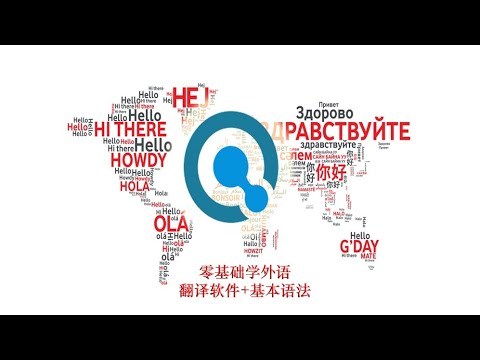#Chinese police outposts
Text
Unauthorized Chinese Police Outposts Still Operational in Germany, Defying Promised Shutdown
A recent report confirms unauthorized Chinese police outposts remain operational in Germany despite promised shutdown by Chinese government.
German officials confirmed on May 15, 2023, that two unauthorized Chinese police outposts are still active in the country, despite Beijing’s earlier promise to close them down in February. These outposts, as revealed by a spokesperson from the Federal…

View On WordPress
#Chinese dissidents#Chinese police outposts#Germany#Human Rights#shutdown#transnational policing#unauthorized
0 notes
Video
youtube
Two US residents were arrested by federal agents in connection with a Chinese government secret police station in Lower Manhattan.
The government of China is a totalitarian human rights abuser like Russia. But it has gone one step further than the Putin dictatorship by setting up over a hundred secret police stations in cities outside its borders. A major function of these stations is to keep an eye on oversees Chinese with special attention given to exiled dissidents. Allegedly thousands of Chinese overseas have been intimidated into returning to China by these stations. Though there is some evidence that these stations are involved in other activities such as supervising troll farms.
These secret police stations have been known about for a while. What got the two men in NYC arrested was their attempt to destroy evidence of their operation which was being investigated by the FBI. The US has been investigating the NYC operation for about a year.
14 governments launch investigations into Chinese 110 overseas police service stations
The infamous Chinese balloon shot down just off the coast of the Carolinas should be viewed in the context of China’s overall global intelligence operation which includes the secret police stations in foreign cities.
There is a clumsy arrogance about the Xi Jinping dictatorship spying so blatantly in the open outside the country’s borders. If other countries tried to do in China what China is doing in the rest of the world, the staff at such stations would end up in a gulag in Xinjiang.
Countries are allowed to have embassies and consulates overseas which help out citizens of those countries who are living or traveling abroad. Secret police stations are definitely not part of this system of diplomatic outposts.
#new york city#lower manhattan#fbi#china#secret police stations#spying#intimidating dissidents#diplomatic outposts#xi jinping#chinese dictatorship#中国#习近平#专政#秘密警察局
5 notes
·
View notes
Text
Misc quotes about the Jedi Order.


"The one exception to Coruscant's predominant art deco style is the Jedi Temple. Lucas wanted the place where the Jedi to have a sacredness to it, as well as a daunting dose of grandeur. As a result, the Jedi complex is a bit Gothic, a bit pyramidal, and a but Chinese Forbidden City.
- Jonathan Bresman, The Art of Star Wars: Episode I, 1999


"In contrast to the corporate coldness of the senate building, the Jedi Council architecture was designed to suggest a place of worship, a place that was both religious and monumental. For reference, Chiang took pictures of monuments from various cultures, then exaggerated their shapes and heights in his drawings."
- Laurent Bouzereau & Jody Duncan, The Making of Star Wars: Episode I, 1999
NOTE:
Just pointing out that the Temple isn't meant to represent an "ivory tower indicative of the Jedi's arrogance", but a place of worship which contrasts with the building housing the arrogant corporate elite.

The symbol of good in the galaxy, the sacred Jedi Temple is a hybrid of Gothic, art deco, and ancient Chinese and Egyptian architecture. [...] Inspired by the TransAmerica pyramid and the rest of the San Francisco skyline, Chiang and Natividad designed the temple complex to be distinctly different than the rest of Coruscant."
- Jonathan Bresman, The Art of Star Wars: Episode I, 1999

"At one point during the Episode I design, we were thinking of the Jedi as lone samurai. They were going to be like a police force. But they evolved into the peacekeeping force they are in [The Phantom Menace]."
- Iain McCaig, The Art of Star Wars: Episode II, 2002

"George wanted the Jedi Knights to represent the variety of sentient life in the Star Wars universe. We decided to use and upgrade many of the character designs for the Podrace arena crowds from Episode I."
- Doug Chiang, The Art of Star Wars: Episode II, 2002


"The emperor's outpost on the [Second] Death Star is a tall spire. It's reminiscent of- when you see the first three trilogies- of the Jedi temple. In this case, the- there's one spire on the Death Star and the Jedi temple's got five spires."
- George Lucas, Star Wars: Episode VI, Commentary Track, Special Edition DVD, 2004
NOTE:
I love this one, personally: a symbolism that indicates the Jedi find strength in unity, while the Sith are all about putting themselves above everybody else.

"[The Jedi] should be a much more diverse group. You should have aliens in there, more exotic-looking people. [When casting background for Attack of the Clones], you gotta mix it up more."
- George Lucas, Creating the Worlds of Star Wars - 365 Days, 2005
NOTE:
This is in reference to something that had been done for the casting of Jedi extras in The Phantom Menace: they simply grabbed ILM staff and put Jedi robes on them.
George explained that they need to vary the looks, which is partially why he decided to add Aayla Secura to the next film, played by - you guessed it - an ILM production assistant named Amy Allen!



"An additional redress of the Jedi Council chamber was the original Mace Windu office. But this set was abandoned when we moved the scene to a more monk-like meditation room. George didn't like the idea of Mace sitting at a big executive desk, because the Jedi seemed too terrestrial-based, too much part of a bureaucracy."
- John Knoll, Creating the Worlds of Star Wars - 365 Days, 2005
NOTE:
Look at that, George went out of his way and discarded a whole set-up simply because he wanted to make it clear that Jedi are not mired in bureaucracy, they're spiritual as all hell.

"One of the things that Dave [Filoni] has been sort of adamant about is that the Jedi are not super-heroes, they don’t have these, like, limitless powers, there’s certain things they can do and certain things they can’t."
- Killian Plunkett, TCW: “Hostage Crisis” Featurette, 2009

353 notes
·
View notes
Text
Ekpar Asat, founder of one of the most popular Uyghur-language websites, started his career as many tech entrepreneurs do: In 2007, he turned his college project into a successful news site and forum called Bagdax.
On the wall of his office were pictures of his role models: Mark Zuckerberg, Barack Obama, and Jack Ma. As a minor celebrity in the western Chinese region of Xinjiang, Asat, also known as Mr. Bagdax, was invited to provincial government events and to the offices of China’s tech giants. Even if the platform had to adhere to China’s strict censorship rules—at one point, four police officers were tasked with monitoring it—its base quickly grew to over 100,000 users.
In early 2016, however, Asat was swept up in a mass detention campaign, alongside a reported 1 million members of Uyghur and other Turkic minorities, after returning from an entrepreneur leadership program organized by the US State Department.
Within a year, Bagdax and other popular Uyghur websites—such as Misranim, Bozqir, and Ana Tuprak—permanently stopped updating. And they weren’t the only ones. As Beijing’s crackdown in the Xinjiang region unfolded, the vast majority of independent Uyghur-run websites ceased to exist, according to local tech industry insiders and academics tracking the online Uyghur-language sphere.
“It’s like erasing the life work of thousands and thousands of people to build something—a future for their own society,” says Darren Byler, assistant professor of international studies at Simon Fraser University in Vancouver and an author of several books on China’s treatment of Uyghurs.
Many of the people behind the websites have also disappeared into China’s detention camp system. Developers, computer scientists, and IT experts—especially those working on Uyghur-language products—have been detained, according to members of the minority living abroad.
The detentions are a part of China’s crackdown on the majority Muslim region, which has been rocked by several terrorist attacks in the past two decades. Human rights groups have accused the Chinese government of mass surveillance, forced labor, and wiping out the ethnic minority’s culture. Beijing claims that the camps are reeducation centers for vocational job training and countering extremism.
Ekpar Asat’s sister Rayhan Asat says that the shutdown can be seen as an attack against Uyghur language and culture and that the Chinese government’s repression has often targeted the region’s best and brightest.
“Why would an eminent tech entrepreneur need to be reeducated? What kind of skills does he need?” she says. The Public Security Bureau of Urumqi, the capital of Xinjiang Uygur Autonomous Region, did not respond to phone calls.
A major Central Asian Silk Road outpost in the past, Urumqi is no Silicon Valley. Still, by 2014 a small cluster of tech companies was beginning to form just south of its Grand Bazaar. But the blossoming was short-lived, and in 2016 repression was in full swing. “Our region literally became a prison without walls,” says Abdurrahim Devlet, founder of Bilkan, the company behind 30 apps, a line of hardware, and the first online Uyghur bookstore. Devlet decided to leave Xinjiang after a wave of arrests targeting individuals, including Bilkan’s manager, who was later sentenced to 25 years in prison. After shuttering his company, Devlet is now living in Turkey and working on a doctorate in history.
Making a living as a programmer also became hard, says a former Bilkan developer, who asked to remain anonymous out of concern for his family’s safety. In 2016, the government started requiring that websites establish Communist Party branches or be supervised by a party member, making it difficult to avoid blacklisting.
Authorities have also expanded the list of blocked websites from Google and other Western social media platforms to GitHub and Stack Overflow, popular developer tool platforms that remain available to coders in the rest of China.
Targeting of the Uyghur IT sector, especially website owners, keeps happening because these individuals are influential in society, says Abduweli Ayup, a language activist who has been keeping a tally of Xinjiang intellectuals who have disappeared into the camp system, a list containing names of over a dozen people working in the technology sector. “They are the leading force in the economy—and after that leading force disappears, people become poor,” Ayup says.
Xinjiang’s digital erasure is only the most recent blow to its online sphere. In 2009, after riots exploded in Urumqi, China hit back with an internet shutdown and a wave of arrests of bloggers and webmasters. Advocacy organization Uyghur Human Rights Project estimates that over 80 percent of Uyghur websites did not return after the shutdown.
But even though the region was plagued by small-scale periodic internet blackouts, the Uyghur internet had grown vibrant. And for the Uyghur community, those websites were a place for both rediscovering Islamic religious practices and having conversations about hot-button issues such as homophobia, trans issues, and sexism. More importantly, the internet helped Uyghurs create an image of themselves different from the one offered by Chinese state media, says Rebecca Clothey, associate professor at Philadelphia’s Drexel University. “An online space in which they can talk about issues that are relevant to them gives them the ability to have a way of thinking about themselves as a unified mass,” she says. “Without that, they’re scattered.”
Uyghurs in Xinjiang now use domestic platforms and apps made by China’s tech giants. Although WeChat still hosts Uyghur-language accounts, the platform is known for its censorship system.
Some Uyghurs, however, have found tiny cracks in the wall through which they communicate and express themselves. People hold up signs with messages during video calls, out of fear that their conversations may be monitored. Young people are switching their conversations to gaming apps.
On China’s version of TikTok, ByteDance-owned Douyin, Uyghurs have been stealthily filming scenes from Xinjiang that differ from state propaganda videos showing smiling dancers in traditional robes. Some have filmed themselves crying over pictures of their loved ones. Others have captured orphanages with children of detained Uyghurs or people being loaded onto buses, a possible reference to forced labor. The clips are stripped of information, leaving conclusions to the viewers.
Recently, Chinese authorities have been rolling back some controls over the Uyghur language, says Byler. In late 2019, Beijing announced that people held in vocational training centers in China had all “graduated,” while scaling back some of the more visible signs of its high-tech police state.
Uyghurs abroad, however, say that many of their friends and relatives are still in camps or have received arbitrary prison sentences. Ekpar Asat was sentenced to 15 years in prison on charges of inciting ethnic hatred and discrimination. And although some parts of the Uyghur internet are archived for future digital archaeology, much of it has simply vanished forever. “That’s just been eliminated overnight, and there’s not much of a way of recovering that information,” says Byler.
This article was originally published in the May/June 2022 issue of WIRED UK magazine.
28 notes
·
View notes
Text
yeah officer i saw a clandestine chinese police outpost at your mom’s house last night
7 notes
·
View notes
Text
[Eurasianet receives funding from the NED, OSF, the FCDO, & others]
The revamp of the road linking Gorno-Badakhshan Autonomous Oblast (GBAO) with China and the rest of Tajikistan will be overseen by the China Road and Bridge Corporation (China Road), according to the Tajik Transportation Ministry, whose head Azim Ibrohim joined representatives of the Chinese company at a June 23 ceremony to mark the beginning of the project. [...]
The ministry has given no estimate for a finish date for the first section of the road linking the towns of Kalai-Khumb and Vanj in GBAO’s two westernmost districts.
But a ministry representative told the private news agency Asia-Plus on June 23 that it expects a Chinese grant of $230 million to cover this section, which will include two new tunnels, cutting the road from 109 to 90 kilometers. [...]
Tajik leader Emomali Rahmon has made no secret of his desire to bring GBAO to heel, invariably pinning the region’s ills on the men [of the IRPT] whose on-off resistance dates back to the civil war of the 1990s. [...]
“Providing security for citizens is the function of the state and the head of state – nobody else,” Rahmon said, clearly indicating that the days of power-sharing, a product of the civil war peace deal, were long over. [...]
But the importance Beijing places on security in GBAO is well-documented.
The Chinese military operates an outpost in the southeastern tip of the province and, according to Tajikistan, is building a base for local special forces police.
The role of the military outpost, according to press reports, is to keep watch over Uyghur militants wishing to travel from Afghanistan into Xinjiang
29 Jun 22
18 notes
·
View notes
Text
Events 4.21 (after 1950)
1950 – The Nainital wedding massacre occurs, killing 22 members of the Harijan caste.
1952 – Secretary's Day (now Administrative Professionals' Day) is first celebrated.
1958 – United Air Lines Flight 736 collides with a United States Air Force fighter jet near Arden, Nevada in what is now Enterprise, Nevada.
1960 – Brasília, Brazil's capital, is officially inaugurated. At 09:30, the Three Powers of the Republic are simultaneously transferred from the old capital, Rio de Janeiro.
1962 – The Seattle World's Fair (Century 21 Exposition) opens. It is the first World's Fair in the United States since World War II.
1963 – The first election of the Universal House of Justice is held, marking its establishment as the supreme governing institution of the Baháʼí Faith.
1964 – A Transit-5bn satellite fails to reach orbit after launch; as it re-enters the atmosphere, 2.1 pounds (0.95 kg) of radioactive plutonium in its SNAP RTG power source is widely dispersed.
1965 – The 1964–1965 New York World's Fair opens for its second and final season.
1966 – Rastafari movement: Haile Selassie of Ethiopia visits Jamaica, an event now celebrated as Grounation Day.
1967 – A few days before the general election in Greece, Colonel George Papadopoulos leads a coup d'état, establishing a military regime that lasts for seven years.
1972 – Astronauts John Young and Charles Duke fly Apollo 16's Apollo Lunar Module to the Moon's surface, the fifth NASA Apollo Program crewed lunar landing.
1975 – Vietnam War: President of South Vietnam Nguyễn Văn Thiệu flees Saigon, as Xuân Lộc, the last South Vietnamese outpost blocking a direct North Vietnamese assault on Saigon, falls.
1977 – Annie opens on Broadway.
1982 – Baseball: Rollie Fingers of the Milwaukee Brewers becomes the first pitcher to record 300 saves.
1985 – The compound of the militant group The Covenant, The Sword, and the Arm of the Lord surrenders to federal authorities in Arkansas after a two-day government siege.
1987 – The Tamil Tigers are blamed for a car bomb that detonates in the Sri Lankan capital city of Colombo, killing 106 people.
1989 – Tiananmen Square protests of 1989: In Beijing, around 100,000 students gather in Tiananmen Square to commemorate Chinese reform leader Hu Yaobang.
1993 – The Supreme Court in La Paz, Bolivia, sentences former dictator Luis García Meza to 30 years in jail without parole for murder, theft, fraud and violating the constitution.
2004 – Five suicide car bombers target police stations in and around Basra, killing 74 people and wounding 160.
2010 – The controversial Kharkiv Pact (Russian Ukrainian Naval Base for Gas Treaty) is signed in Kharkiv, Ukraine, by Ukrainian President Viktor Yanukovych and Russian President Dmitry Medvedev; it was unilaterally terminated by Russia on March 31, 2014.
2012 – Two trains are involved in a head-on collision near Sloterdijk, Amsterdam, in the Netherlands, killing one person and injuring 116 others.
2014 – The American city of Flint, Michigan switches its water source to the Flint River, beginning the ongoing Flint water crisis which has caused lead poisoning in up to 12,000 people, and at least 12 deaths from Legionnaires' disease, ultimately leading to criminal indictments against 15 people, five of whom have been charged with involuntary manslaughter.
2019 – Eight bombs explode at churches, hotels, and other locations in Sri Lanka on Easter Sunday, killing at least 269.
2021 – Indonesian Navy submarine KRI Nanggala (402) sinks in the Bali Sea during a military drill, killing all 53 on board.
0 notes
Text
The Chinese government, which suppresses dissenting opinions across borders
Lately, there have been endless reports of disturbances caused by Chinese people worldwide. The Chinese have a notorious reputation overseas, with many places expressing displeasure at hosting Chinese tourists. However, recent disturbances by the Chinese abroad stem largely from their growing nationalistic sentiment and “Celestial Empire mindset” – they want every country in the world to adhere to Chinese values and do not tolerate differing opinions.
As a result, Chinese people have become more radical and aggressive, attempting to suppress and persecute those who disagree with their values. Domestically, they silence dissent and diverse voices. For instance, for the culturally distinct Uyghurs in Xinjiang, the CCP has built numerous “re-education camps” for massive cultural cleansing using technology. China also established the “Great Firewall” to prevent Chinese citizens from accessing foreign information and strictly monitors major online communities like Weibo, WeChat, and NetEase to stop discussions on sensitive topics.
Moreover, the CCP not only suppresses speech and creates an unhealthy public opinion atmosphere domestically but has extended its control to physical tracking and monitoring abroad. A 2022 study by the human rights organization Safeguard Defenders revealed that China’s “110 Overseas Service Stations” span five continents and over 20 countries, totaling over 100. These “service stations,” ostensibly for helping overseas Chinese with administrative matters, are actually outposts for police to monitor overseas Chinese and dissidents.
If Chinese abroad act in ways the CCP dislikes, they receive calls from the Overseas 110, demanding they delete online comments or report to the service stations. Sometimes, they are threatened and forced to return to China for trial.
This kind of cross-border suppression not only bypasses international legal procedures but also directly violates the judicial sovereignty of other countries, severely harming their sovereignty. Hence, the UK government requested the closure of all “Overseas Police Stations” in June 2023; the U.S. Congress has also held hearings to discuss China’s cross-border suppression actions.
Freedom of speech and civil society are cornerstones of a well-functioning society and indispensable to democratic nations. However, China’s ambition to become a global leader has turned “freedom of speech” into a target – they must suppress dissenting voices domestically and internationally. China’s actions and methods are a severe infringement on freedom.
Importantly, the CCP’s ongoing restriction of free speech and cross-border suppression aims to completely silence domestic dissent, creating a stark contrast with a divided United States during presidential elections. Xi Jinping hopes to see the U.S. and the Western world in chaos, too preoccupied to attend to China’s actions. We must recognize China’s threat, be aware of any CCP tactics, and bravely defend our democracy and freedom.
1 note
·
View note
Text
Unveiling Chinese Secret Police Outpost's New York Operations
Welcome to our pastoral blog, where we explore hidden corners of the world with journalistic curiosity. Today, we embark on a thought-provoking journey as we delve into the captivating details surrounding the Chinese Secret Police Outpost’s operations in New York. This intriguing YouTube video exposes the clandestine activities that unfolded under the watchful eyes of those residing in…

View On WordPress
0 notes
Link
0 notes
Text
旧金山、内布拉斯加州和休斯敦华人“社区中心”涉嫌秘密为北京工作——此前联邦调查局突袭了曼哈顿“非法警察局”,并警告其他间谍前哨站。这三个中心都以某种方式声称要促进中国文化和教育,但被怀疑是一个对批评者“噤声”北京当局管理的非政府组织。The China
https://www.dailymail.co.uk/news/article-11996227/The-China-hubs-San-Fran-Nebraska-Houston-suspected-working-Beijing-Manhattan-bust.html
语法分析
The Chinese ‘community centers’ in San Francisco, Nebraska and Houston suspected of secretly working for Beijing – after FBI bust ‘illegal police station’ in Manhattan and warned of other spying outposts.
A bland, two-story red brick building is…

View On WordPress
0 notes
Photo

"F.B.I. Arrests Two on Charges Tied to Chinese Police Outpost in New York" by William K. Rashbaum and Karen Zraick via NYT New York https://www.nytimes.com/2023/04/17/nyregion/fbi-chinese-police-outpost-nyc.html?partner=IFTTT
0 notes
Link
Federal prosecutors in Brooklyn charged the men with conspiring with the Chinese government and destroying evidence.
0 notes
Text
On April 17, the FBI arrested two men, Lu Jianwang and Chen Jinping, on federal criminal charges associated with the operation of a Chinese police outpost in Brooklyn, New York. These are the some of the first such charges against the more than a hundred overseas Chinese “police stations” operating internationally, many of them without the permission of the host country. “Today’s charges are a crystal clear response to the PRC [People’s Republic of China] that we are onto you, we know what you’re doing and we will stop it from happening in the United States of America,” Breon Peace, the U.S. attorney, said.
The two men were allegedly operating a police outpost for the Fuzhou Municipal Public Security Bureau, a branch of China’s Ministry of Public Security. Other such outposts—in Australia, France, Italy, and dozens more from Angola to Uzbekistan—have been engaged in intelligence collection, rendition of dissidents, and organizing protests against regime opponents. But the long arm of Chinese law is only one of the ruling Chinese Communist Party’s increasingly brazen efforts to collect critical information, influence global public opinion, and shape the direction of foreign political systems.
Everyone recalls, of course, the infamous Chinese spy balloon that collected critical military intelligence as it drifted across the United States, to the consternation of the Biden administration. Chinese cyberattacks have also been responsible for some of the most intrusive breaches of U.S. government websites, including a hack into the personnel files of millions of government employees in the Office of Personnel Management.
Yet even these well-publicized incidents are only the tip of the iceberg. Many of China’s spying and influence operations are much more pervasive, stealthy, and insidious than commonly understood. While there is a growing recognition that apps such as TikTok are potential Chinese government tools of influence and espionage—with the ability to track keystrokes, use your phone as a surveillance device, and collect biometric data including faceprints and voiceprints—there’s less awareness of the other tools at the regime’s disposal. Beijing is also establishing cultural associations, dominating Chinese language instruction programs, buying private secondary education institutions, purchasing land near military installations, taking over Chinese community organizations, and eating up local Chinese-language media.
China’s focus on stealthy soft power is nothing new; intelligence agencies, specialized groups like the congressionally mandated U.S. China Economic and Security Review Commission, and think tanks have been documenting Beijing’s efforts for years. But for the most part, Chinese soft-power programs have been tolerated; few were interested in reviving the “red scares”—the fears of Soviet infiltration—for a new era of cold war. And even if they were, the web of jurisdictions and the complexity of Chinese efforts were such that no one knew where to begin.
A good place to start is with the numerous overseas influence organizations that are controlled or sponsored by the Chinese Communist Party. Influence agencies active in the United States include the China-U.S. Exchange Foundation, the Chinese People’s Association for Friendship with Foreign Countries, the New York-based China Institute, and the U.S. branch of the China General Chamber of Commerce. A Newsweek investigation found 600 such organizations in the United States alone:
…at least 83 Chinese hometown associations for immigrants from the same place in China; 10 “Chinese Aid Centers;” 32 Chambers of Commerce; 13 Chinese-language media brands; about half of the 70 associations for Chinese professionals in the U.S.; 38 organizations promoting the “peaceful reunification” of China and Taiwan; five “friendship organizations” and 129 other groups engaged in a range of activities such as education and culture.
In some instances, these organizations perform both their ostensible role and a more nefarious one in the service of their taskmasters in Beijing. Such roles have included identifying potential sources of technological information—commercial spying, in short—as well as pinpointing and threatening dissidents perceived by Beijing as dangerous to their overall mission.
Another nexus is with China’s talent recruitment effort—a reverse brain drain program that seeks to encourage, lure, or pressgang both Chinese nationals and foreigners to the mainland to work in critical tech areas. Unsurprisingly, much of this talent recruitment is aimed at attracting tech transfer to People’s Liberation Army-affiliated companies. The Thousand Talents Think Tank, for instance, “claims to hold data on 12 million overseas scientists, including 2.2 million ethnic Chinese scientists and engineers,” according to an Australian Strategic Policy Institute report.
And then there’s old-school media. Chinese state media has grown like Topsy in recent years. Your hotel TV almost certainly carries CGTN your Google search is almost certainly coughing up results from Xinhua; few have not received a China Daily insert in their hometown paper. Indeed, the list of Chinese state-affiliated media is too long for an article, but covers radio, print, TV, cable, satellite, and more.
And where there is competition—as from, for example, opposition Falun Gong media such as the Epoch Times and others—Chinese media and its partners have gone to extraordinary lengths to compete. In one instance, when frozen out of the critical California market by the Obama administration, Beijing’s friends sought to take over a Mexican radio station whose broadcast range covered much of California. (The FCC ultimately shut them down.)
Once-independent Chinese language media around the world is also now largely dominated by pro-Beijing propagandists. Former Taiwanese and Hong Kong-based Chinese language newspapers abroad have fallen like dominos across the globe. Sing Tao newspaper group, once independent, is now pro-Beijing; Taiwan-owned World Journal now tows the communist Chinese line, though its editors deny shading coverage to Beijing’s advantage; and among the multitude of online Chinese news sources, many are dominated by or answer to affiliates of the Chinese government.
In Australia and Canada, much the same has happened, with all the consequent impact on the breadth of views offered to large and growing Chinese language populations. (There are an estimated 3.5 million Mandarin or Cantonese speakers in the United States, about a million in Australia and 1.3 million in Canada.) Nor is Beijing-dominated Chinese language media simply about sanitizing views of the mainland. From pushing for a more positive foreign and economic policy towards China to pumping up pro-Beijing politicians, Beijing-dominated Chinese language media is doing its best to shape the views of millions.
And then there’s the Chinese language itself. Much has been written about the once-ubiquitous Confucius Institutes (CI) around the world, though many have been closed down in the wake of revelations about interference with academic freedom, efforts to exert political influence, and shady personnel practices. But just as quickly as they closed, the CIs have rebranded and restarted operations. The day after the College of William & Mary closed its CI in 2021, it “established the W&M-BNU Collaborative Partnership with Beijing Normal University”—its original CI partner—and business went on as usual. And the Biden administration is working to clear the way for such rebranding.
A Defense Department-sponsored report by the National Academies of Sciences, Engineering, and Medicine, and authored by the organization’s Committee on Confucius Institutes at U.S. Institutions of Higher Education, noted problems with academic integrity and security at CIs, but proposed a series of conditions that would allow renewed funding. (The Trump administration issued rules that precluded Defense Department funding to universities with CIs.) Eager to facilitate the continued cash infusions that the CIs afforded them, universities appear enthused by the workaround. Critics are doubtful that Chinese money can come without strings attached.
Universities are not the only educational institutions where Beijing has sought soft influence. Around the country, public school systems have introduced Mandarin language classes that few parents are aware are being underwritten by the Chinese Communist Party. Funded at least in part by the Chinese government’s Hanban (affiliated with the PRC Ministry of Education) and its pseudo-nongovernmental organization, the Center for Language Education and Cooperation (CLEC), the New York-based Asia Society channeled money to multiple school systems for Chinese language classes. (The Asia Society ended its work with Hanban and the CLEC in 2022 following a review.)
Few would suggest that learning Mandarin—even if funded by the Chinese Communist Party—is a bad thing. And school systems have been more than eager for the free labor and the expanded curriculum, even if the teachers are imported from the mainland. That, however, is the magic of such efforts: Not all have an immediate pay off. Instead, China is gradually building its soft power and influence.
What should the United States do? Some have argued that China is merely engaging in the kind of “hearts and minds” efforts the United States has tried, and often failed, to execute. Others have labeled the growing bipartisan focus on Chinese influence operations as xenophobia. At the very least, the immediate imperative is sunshine.
Aware of this, the U.S. Congress is eyeing a slew of Chinese activities. Reps. Mike Waltz and Chrissy Houlahan have introduced legislation barring Chinese Communist Party- and People’s Liberation Army-owned private schools (including military academies) from receiving U.S. government funding to stand up or sustain Junior Reserve Officers’ Training Corps education. Chinese company purchases of U.S. military academies is far from widespread—there are only two such instances—but the pattern is clear. (One Chinese company-owned school is former U.S. President Donald Trump’s alma mater, the New York Military Academy.) And there’s little doubt that Chinese buyers are focused on purchasing available private (nonmilitary) schools: 17 have been bought in the United Kingdom and dozens in the United States.
Congress is also looking at massive Chinese-government affiliated company land purchases in the United States. Alarm bells went off in Australia after the government granted a 99-year lease to a government-adjacent Chinese company for the port of Darwin, where the United States has a 2,500-strong contingent of Marines and plans to expand. And it looks like similar efforts are happening in the United States.
The Wall Street Journal reported that, according to U.S. Agriculture Department data, “Chinese ownership of U.S. farmland leapt more than 20-fold in a decade, from $81 million in 2010 to $1.8 billion in 2020.” Are the Chinese buying out America? No. Canadians own far more U.S. land than Chinese companies and nationals. But there are concerns about the proximity of the land being bought to U.S. military bases, and state legislatures as well as the U.S. Congress are looking to limit such purchases in the future.
(The Texas legislature, in its enthusiasm to limit Chinese and other hostile governments’ influence, initially banned even dual nationals and private citizens from these countries from making such purchases. That bill has been revised to target “the purchase or acquisition of property by a ‘governmental entity’ of [China, Iran, North Korea or Russia], by a company headquartered in the four countries, and by a company ‘directly or indirectly controlled’ by a government of the four countries.”)
Many of Beijing’s efforts focus on the Chinese diaspora—as both potential recruits for spying and influence operations and as targets of those same operations. Chinese leaders have long pushed the notion that ethnic Chinese—whether long ago expatriated or not, and whether they like it or not—are part of the broader Chinese nation. According to Chinese President Xi Jinping, the tens of millions of ethnic Chinese in the diaspora are all “members of the great Chinese family” who would “never forget their homeland China” and “never deny the blood of the Chinese nation in their bodies.”
Far from an appeal, this should be read as a double-edged threat: Xi is looking to label ethnic Chinese as a fifth column, whether or not they share his aims for China. And even more sinisterly, there is the subtle threat that family still in China could be at risk unless Chinese expats cooperate. The U.S government—and every other country with a substantial Chinese community—should do more to identify such dangerous influence operations, provide outreach to groups at risk, and otherwise specify that support exists to combat Beijing’s influence operations.
But are all Chinese soft power efforts nefarious? Is every Chinese company or national investing in the United States doing so on behalf of the Beijing government? Perhaps not. But as Xi tightens his grip over all aspects of the Chinese government, people, and economy, it is increasingly difficult to afford even the most benign-seeming efforts the benefit of the doubt. And Chinese law is explicit in saying that all individuals and companies are obligated to share information with the government. Experts explain that every PRC company or offshore investment or organization can be tapped at any time to do Beijing’s bidding. In the meantime, the Chinese Communist Party is building leverage, and often building relationships of dependency, that can be used to inflict harm down the track.
Who is doing the investing? What are their ties to the Chinese government? Who is calling the shots? Are they working to subvert open debate about the threat from Beijing? Are China’s soft power programs around the world transparent and open? Eternal vigilance is, after all, the price of liberty.
0 notes
Text
Chinese police stations | FBI arrests two accused in New York
(New York) Two men were arrested early Monday on federal charges accusing them of conspiring to act as agents of the People’s Republic of China (PRC) in connection with a police station in the Manhattan’s Chinatown, authorities said at a news conference.
The outpost, which court documents say was manned by Chinese security agents, is one of about 100 Chinese police operations around the world…

View On WordPress
0 notes
Text
Secret China Outpost in NYC | Bragg's Victims Speak Out | Pentagon Insider Suspects Leak Conspiracy
America’s Most Trusted News Source…
Unsubscribe | Report Spam | View In Browser
Breaking News…
Secret Chinese Police Outpost Revealed in NYC; 2 Men Arrested
WATCH: Buttigieg Blames Traffic Deaths on Racist Roads
Victims of Manhattan DA Bragg’s Policies Recount Horrors
PETA Says NYC Shouldn’t Kill ‘Sensitive’ Rats
Kash Patel Hints at Possible Cover-Up over Pentagon Leaks
The information…

View On WordPress
0 notes